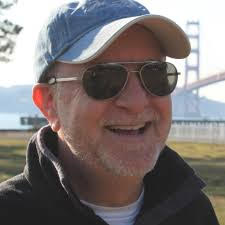Film Career Finder
Start Here:
Screenwriter/TV Writer
Career Overview
Screenwriters and TV Writers write scripts for film, TV, commercials, and other types of content, including all scenes and dialogue. Their work may also involve writing treatments and series bibles as they build the worlds of the films and shows we watch.
Alternate Titles
Script Writer, Screenplay Writer, Writer, Teleplay Writer, Staff Writer, Movie Writer, Feature Film Writer
Avg. Salary
$117,279 for a spec film script1

How To Become a Screenwriter/TV Writer
- Career Description
- Salary
- Career Outlook
- Career Path
- Experience & Skills
- Education & Training
- Additional Resources
- Sources
- References
Career Description
Screenwriters and TV Writers, also known as script writers, build the worlds we see onscreen. They create the characters we love, keep us on the edge of our seats, and write moments that we think about for days (and even years) after seeing a film or TV show that resonates. They’re responsible for writing the screenplays and TV scripts that Directors and their crews shoot for the screen.
Screenwriters may be hired on assignment to write a script, or they might sell or option a spec script. A spec script is a screenplay a Screenwriter has written on their own with no initial monetary compensation from a production company or studio.
The question everyone asks… How do you break into screenwriting? This video explains what aspiring professionals must do to garner interest in their work and potential future gigs.
A TV Writer is typically staffed on a show and is part of a writers’ room. They will generally contribute ideas to and give notes for each script written for a show, as well as be assigned specific episodes to write for it.
So how do you break into the industry as a Writer? To learn how to build a career as a TV Writer or Screenwriter, we spoke to several professionals who’ve written and created award-winning series and penned screenplays for acclaimed films.
In this article you’ll hear from:
Salary
The recent Writers Guild of America strike resulted in more beneficial rates for both TV Writers and Screenwriters who have membership in the union.
Right now, the minimum compensation for an original screenplay plus treatment is $160,084.
For a TV Writer who scripts a 30-minute teleplay plus story for a network prime time show, the minimum compensation is $29,823. Should they write a 60-minute teleplay plus story for a network prime time show, the minimum compensation is $43,862.
What are different ways to earn a living as a Screenwriter? This video touches on the need for script doctors and rewrite pros.
What a Screenwriter or TV Writer is paid for their work depends on several factors, including the nature of the medium and whether or not they are part of the Writers Guild of America (WGA). WGA minimum rates vary based on the type of content.
To see firsthand the many, many variations of compensation rates for all types of writing content, check out the most current WGA Schedule of Minimums.
It’s also important to keep in mind that both Screenwriters and TV Writers are typically repped by one or all of the following: Managers, Agents, and Entertainment Lawyers. Each of these individuals will receive a percentage of a Writer’s salary for their services.
Career Outlook
The professional life of a Screenwriter or TV Writer is one that will likely have a series of ups and downs throughout its course.
Writing for the entertainment industry is an incredibly competitive field. That being said, there are multiple opportunities for both Screenwriters and TV Writers to get noticed and hopefully employed for their craft.
Given the sheer number of individuals who want to write for film or television, many aspiring Screenwriters and TV Writers look to competitions and fellowships as a way to gain traction in the industry and the attention of Managers or Agents who may want to represent them.
Multiple organizations also provide introductions for Screenwriters and TV Writers to those individuals, again with the hope that they may want to represent or collaborate with them.
What does it mean to be a working Screenwriter? This video provides some insight into the lifestyle of a professional Script Writer and what you can expect in this career.
Just like virtually every other facet of the industry, it’s also up to Screenwriters and TV Writers to take initiative and make connections on their own to help buoy their future success.
Even with the many options available to aspiring Screenwriters and TV Writers, the vast majority of them will likely need to supplement their income via other professions such as copywriting, teaching, or any number of other outlets as they work to become Writers who are fully financially sustained through their screenwriting or TV writing work.
This even applies to acclaimed Screenwriters like Pete Goldfinger (Saw X, Jigsaw, Avatar: The Last Airbender), known for writing multiple theatrical releases in the Saw franchise. “My dad was a Doctor, my grandfather was a Doctor, my brother’s a Doctor, and so it’s very hard to manage the ups and downs of finances that come in,” he explains. “Some years I make enough money that I could live on it for four years. Some years I make nothing.”
As a result, it’s important for Screenwriters and TV Writers to also keep in mind that even with a sold script or staffed position on a TV show, they will likely need to continue making connections and advocating on their own behalf for the entirety of their careers.
Career Path
The career path of a Screenwriter or TV Writer will probably not be a linear one.
Many specialties in the entertainment industry do not require professionals to get formal training in them. That being said, film schools across the country offer screenwriting majors and courses for interested students, and some aspiring Screenwriters or TV Writers choose to get a foundation of expertise through them.
Beyond this type of education, it’s largely up to a Screenwriter or TV Writer to be as much their own PR Rep as a writing expert to draw attention to their skills and hopefully attract work. While it would be incredible to just write a first script and have someone instantly decide to turn it into a film, that kind of thing is extremely rare.
In our interview with John Zinman, the Screenwriter behind hit films and shows like Lara Croft: Tomb Raider and The Blacklist, he revealed the most common career path for aspiring screenwriters. “You write a couple of scripts, you start building your network, you start getting people to be familiar with your work, and you find people who support your work and believe in you. Eventually, someone will say, ‘Hey, you know what? I have a project. Why don’t you come up with a pitch?’ Then you get hired to write a script.”
While a Screenwriter or TV Writer doesn’t necessarily have to have a Manager or Agent or Entertainment Lawyer, these individuals can be instrumental in helping to advance their career. For this reason, attaining representation is considered a career milestone for a Screenwriter or TV Writer.
Months and often years can go by between “gigs” for a Screenwriter or TV Writer, which makes it important for someone entering this field to accept this type of ebb and flow career. The reason for these sometimes substantial lulls often boils down to projects being abandoned before they make it to completion.
What does it mean to write a script for a studio? This video breaks down the many ways a Screenwriter may get a studio gig.
An aspiring Screenwriter or TV Writer must understand that many of their scripts will never be produced. Moreover, jobs that they are hired for may also never see the proverbial light of day on-screen, be it in a theater or in someone’s home. People who are attached to a script may drop out, which can impact its viability moving forward, or those who were going to financially back it may likewise decide to pass on the project.
For these reasons, many Screenwriters and TV Writers may decide to take matters into their own hands and produce projects. Many Screenwriters become hyphenates such as a Writer-Director or Writer-Producer to have more control over their work. TV Writers may decide to produce their own web series or another example of their work to get the attention of those who could greenlight a bigger project.
While this is a career path may contain moments of frustration and disappointment, it’s also one that can bring great creative fulfillment and excitement. If you stick with it through the ups and downs, there’s a good chance you will succeed.
Experience & Skills
While multiple screenwriting programs can help to teach an aspiring Screenwriter or TV Writer how to properly format a script, it’s important that they understand all the various components of a script and why each is necessary for this type of storytelling.
Beyond technical expertise, Screenwriters and TV Writers must also understand how all the many elements of writing for the screen should come together to create a cohesive and compelling story. Some of these elements that a Screenwriter or TV Writer must master include:
- Act structure
- Character development
- Concept
- Plot
- Theme
Some Writers may aspire to be only Screenwriters. Some want to be only TV Writers. And another segment of this creative community may want to write for both film and television.
Emmy-nominated Screenwriter Amy Aniobi offers up her firsthand advice on how to set yourself up for professional success in this industry.
Regardless of the category they ultimately fall into, all Writers should know that there is no single formula that works for each script–especially when crossing over from film to television or vice versa.
Elements like act structure and plot development are considerably different for a feature script versus a TV script. They even differ between a one-hour script and a half-hour script! For these reasons, Writers must know and understand these differences.
However, while storytelling fundamentals and format can be taught, some aspects of storytelling are instinctual — a natural talent that can’t always be learned.
– Pete Goldfinger
Outside of their specific writing capabilities, Screenwriters and TV Writers will also be expected to competently pitch their stories to others. Though some Managers, Agents, or Producers may become acquainted with a script just by reading it, just as often they learn of the property directly from the Writer.
In short, a Screenwriter or TV Writer must know their scripts so well that they can successfully explain to someone else what they are about–and often in just a matter of minutes! Hand in hand with these skills is the ability of a Writer to network with others and advocate on their own behalf for potential jobs.
And on that note, Screenwriters shouldn’t only be passionate about their voice, but also about the industry they’re trying to be part of. Filmmaking is a team sport, and a big ego combined with a lack of enthusiasm can prevent talented artists from catching their big break.
Education & Training
As mentioned, some Screenwriters and TV Writers begin their professional careers with a formal education in screenwriting or TV writing.
Some organizations also offer less comprehensive writing classes–think a few weeks or a few months of instruction–to help aspiring Screenwriters and TV Writers find their footing.
The internet likewise offers a range of free resources via screenwriting-centric websites or sites such as MasterClass and YouTube that aspiring Screenwriters and TV Writers can take advantage of anytime they want for no little or no cost.
Do you need to go to film school for screenwriting? This video discusses the fact that learning the craft isn’t limited to just a few years of higher education. Rather, it’s a lifelong pursuit.
Several fellowships exist that also aim to educate and deepen the expertise of aspiring Screenwriters and TV Writers.
While no formal training is required to be a professional Screenwriter or TV Writer, it’s often in the best interest of someone wanting to write feature or TV scripts to learn the basics – especially formatting basics – as they build their writing careers.
A great way to understand what makes a great script in general and a great film or TV script specifically is to read other screenplays and teleplays! It’s never been easier to access Oscar-winning and Emmy-winning scripts online.
“Reading screenplays starts to train your mind to think in that language because it’s a very particular format,” explains Zinman. “ I recommend reading the script while you’re watching the movie. Have the script in your lap while watching and see what changed and what stayed the same. How did they translate it from the page to the screen? Start getting a sense of how to think visually as you’re writing.”
Just as with finding and reading screenplays and teleplays, there is no shortage of “how to” screenwriting books for aspiring Screenwriters to consume. Some of the most popular ones include:
- The Coffee Break Screenwriter: Writing Your Script Ten Minutes at a Time by Pilar Alessandra
- The Nutshell Technique: Crack the Secret of Successful Screenwriting by Jill Chamberlain
- Screenplay: The Foundations of Screenwriting by Syd Field
- Story: Substance, Structure, Style, and the Principles of Screenwriting by Robert McKee
- Save the Cat! The Last Book on Screenwriting You’ll Ever Need by Blake Snyder
Beyond reading, learning, and understanding the craft of screenwriting, though, is the actual act of doing it! To strengthen your skills and grow your confidence in those skills, you must write. A lot.
That means setting up a writing schedule. That also means getting comfortable with the other writing tools that you must create for your craft in addition to spec scripts. Loglines. Beat sheets. Outlines. Treatments. Get to know them all.
While there’s no guarantee of success in the entertainment industry, by taking advantage of every opportunity available to you, you can certainly increase your odds of becoming a working Screenwriter.
Additional Resources
Screenwriters and TV Writers can test their skills through a plethora of screenwriting contests. Among some of the more reputable competitions are the Academy Nicholl Fellowships, the Austin Film Festival, and Final Draft’s Big Break.
Note that generally all screenwriting competitions require an entry fee.
Aspiring Screenwriters and TV Writers can also submit to any number of fellowships. Though highly competitive, these fellowships are completely free to enter and can provide a substantial steppingstone for any Writer’s career. Among the more well-known fellowships are the Disney Entertainment Television (DET) Writing Program, the Paramount Writers Mentoring Program, and the Warner Bros. Television Writers’ Workshop.
For Screenwriters who already have a completed script, Goldfinger recommends checking out The Black List – a paid coverage and script-hosting service highly-respected by industry professionals. “Even if [your script is] terrible, you’ll get some feedback. But if it isn’t terrible, there’s a chance you get great feedback, and then somebody calls you, and then you’re off and running. That’s a way that you could break into the business.”
As mentioned, Screenwriters and TV Writers can look to alternate resources to help hone their writing skills. Organizations like Script Anatomy, Writing Pad, and MasterClass offer in-person and online classes.
Sources

Pete Goldfinger
Pete Goldfinger is a working feature and television writer in Hollywood who has written several feature films for Lionsgate and Summit such as Jigsaw, which grossed over $100MM, Sorority Row, and Piranha 3D. He has also written and sold television shows to all major networks such as Teenage Mutant Ninja Turtles and Medinah.
Pete Goldfinger runs his own screenwriting retreats, in-person workshops, and Zoom classes where he works with other screenwriters, helping them turn their projects into something that they can sell.

Jen Klein
Jen Klein left North Carolina with a battered Chevy and an Actor boyfriend. Neither were still around past her early years in Hollywood, which were spent writing animation, writing logic puzzles, and helping this one random dude write a book about roller coasters. Now—after stints on both GREY’S ANATOMY and STAR—she is a published author and a Co-Executive Producer on 20th/FOX’s medical drama THE RESIDENT. Jen lives in Burbank with way too many boys and animals, all of whom are unruly and ill-behaved.

Andrew Lanham
Andrew Lanham is currently writing the Paramount feature HARBINGER, which is based on the Valiant comic book about a powerful telekinetic super-powered outcast with a drug problem and a disregard for the world at large. Neal Moritz and Toby Jaffe of Original Film are producing and Justin Tipping (DEAR WHITE PEOPLE, THE CHI) is directing. Recently, Andrew co-wrote on the new Marvel movie SHANG-CHI with Destin Cretton and Dave Callaham. He also co-wrote JUST MERCY, based on the book by Bryan Stevenson, starring Michael B. Jordan, Jamie Foxx, and Brie Larson. His film THE KID, directed by Vincent D’Onofrio and starring Dane DeHaan, Ethan Hawke, and Chris Pratt, was released last year by Lionsgate.
Furthermore, Andrew co-wrote THE SHACK for Summit Entertainment, Gil Netter, and Brad Cummings which starred Sam Worthington, Octavia Spencer, and Tim McGraw. He also co-wrote THE GLASS CASTLE with Destin Daniel Cretton directing and with Gil Netter producing. Naomi Watts, Brie Larson, and Woody Harrelson starred in the film.

John Zinman
Patrick Massett and John Zinman co-wrote Lara Croft: Tomb Raider starring Angelina Jolie. Their television career began with Veritas: The Quest at ABC, which Patrick and John Co-Created and Executive Produced. They then went on to Co-Executive Produce Emmy Award-Winning, Friday Night Lights at NBC and The Chicago Code at FOX.
Patrick and John also Co-Executive Produced Last Resort at ABC with Executive Producer Shawn Ryan. Patrick & John Co-Executive Produced The Blacklist starring James Spader at NBC. They were Executive Producers/Showrunners at NBC’s The Player starring Wesley Snipes.
Patrick and John co-wrote Gold starring Matthew McConaughey, directed by Stephen Gaghan. Most recently, under an overall deal at Skydance Media, they worked with Laeta Kalogridis to develop the live-action Sword Art Online series for Amazon. Patrick and John are also collaborating on a feature film, Adam, with Vice Media, based on the best-selling book, Acid Test by Tom Shroder. They are also in prep on the feature film, Resistance, produced by Lawrence Bender and A Band Apart, directed by Harold Zwart.
References
- 1Rickett, Matt. "Screenwriter Salary: How Much Do Screenwriters Really Make in 2021". StudioBinder. published: December 24, 2020. retrieved on: March 12, 2021
- 2Siegemund-Broka, Austin and Paul Bond. "Hollywood Salaries Revealed: Who Makes What on the Lot and on Location". The Hollywood Reporter. published: 2 October 2015. retrieved on: 12 March 2021